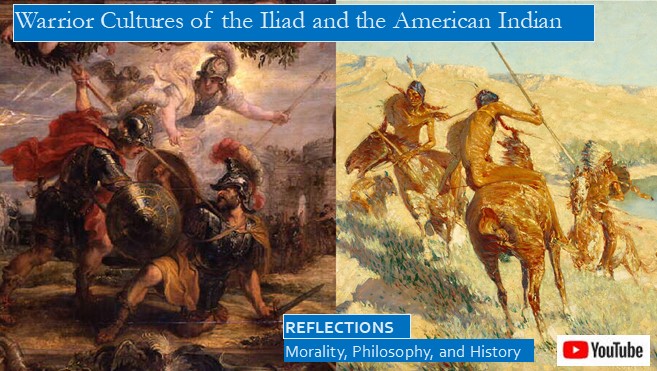
One of the most courageous characters of the Iliad is Chryses, the father of Chryseis, priest to Apollo, who ALONE visits the armed camp of the enemy, the camp of the Greeks, bringing a ransom for his beloved Chryseis.
REFLECTIONS ON THE ILIAD
Iliad Blog 1: Iliad, Blog 1, Why Should a Christian Read the Iliad?
http://www.seekingvirtueandwisdom.com/iliad_blog01/
The Iliad, the Basis of Greek Culture and the Western Philosophical Tradition
https://youtu.be/DpmuhZJUJn0
Iliad Blog 2, Captured Concubines in the Iliad and the Torah
http://www.seekingvirtueandwisdom.com/iliad_blog02/
The Iliad, blog 4, Briseis, Chryseis, Aren’t all Concubines the Same?
http://www.seekingvirtueandwisdom.com/the-iliad-blog-4-briseis-chryseis-arent-all-concubines-the-same/
Concubines in the Iliad, Old Testament, and Christian Tradition
https://youtu.be/bGHHD7XTvr0
Please view our YouTube video, it has content not in this blog, like a camp meeting between Pope Leo the Great and Attila the Hun:
Iliad, Blog 3, The Warrior Cultures of the Iliad and the American Indian, Bravely Visiting the Enemy Camp
https://www.youtube.com/watch?v=ynIx-AVI2f8&t=44s
YouTube Script has more book links: https://www.slideshare.net/BruceStrom1/the-warrior-cultures-of-the-iliad-and-the-american-indian-bravely-visiting-the-enemy-camp-250376447
The Iliad Blog 5, the Tide of Battle Turns Against the Greeks
http://www.seekingvirtueandwisdom.com/the-iliad-blog-5-the-tide-of-battle-turns-against-the-greeks/
The Iliad Blog 6, Embassy to Achilles, Oration, Failed Meeting
http://www.seekingvirtueandwisdom.com/the-iliad-blog-6-embassy-to-achilles-oration-failed-meeting/
The Iliad Blog 7, the deaths of Patroclus and Hector
http://www.seekingvirtueandwisdom.com/the-iliad-blog-7-the-deaths-of-patroclus-and-hector/
This video approximately corresponds to blogs 5 through 7, with some additional material:
The Iliad of Homer: Glory, Honor, Madness, and Futility of War: https://youtu.be/7lI2ZQ50wRc
YouTube script with more book links:
https://www.slideshare.net/BruceStrom1/the-iliad-of-homer-honor-glory-madness-and-futility-of-war
CONTINUING WITH THE ILIAD
As we discussed in the prior post, before attacking Troy, the Greeks first attacked and sacked the cities of their allies surrounding Troy, and carried off many of their young maidens as newfound concubines, King Agamemnon won the young girl Chryseis, while King Achilles won the beauty Briseis. Chryses, father of Chryseis, seeks to ransom his daughter Chryseis. His courage impresses the armies of the Greeks, but he is treated badly by Agamemnon:
“And all the ranks of the Achaeans cried out their assent:
‘Respect the priest, accept the shining ransom!’
But it brought no joy to the heart of Agamemnon.
The king dismissed the priest with a brutal order
ringing in his ears: ‘Never again, old man,
let me catch sight of you by the hollow ships!
Not loitering now, not slinking back tomorrow.
The staff and the wreaths of god will never save you then.
The girl – I won’t give up the girl. Long before that,
old age will overtake her in my house in Argos,
far from her fatherland, slaving back and forth
at the loom, forced to share my bed! Now go,
don’t tempt my wrath – and you may depart alive.’
Iliad Blog 1 http://www.seekingvirtueandwisdom.com/iliad_blog01/
The old man was terrified. He obeyed the order,
turning, trailing away in silence down the shore
where the battle lines of breakers crash and drag.”
He was terrified, but he showed no fear, he retreated like you should retreat from a wild animal, walking, not running, not panicking like a coward.[1]
There is nothing more courageous in a warrior society than to walk into the enemy camp in broad daylight, unarmed, with dignity, with bequests. Nothing.
The Iliad has another story of a brave man who alone, in broad daylight, unarmed, dares to enter the Greek camp.
In the last chapter of the Iliad, Achilles kills Hector in battle, avenging the death of his bosom friend Patroclus, dominated by his rage, drags the dead body of Hector first around the walls of Troy, where all the Trojans can see, then around the tomb of his dead friend Patroclus, where all the gods can see, refusing to give up the body for burial by the Trojans.
On Mount Olympus the gods debate, then Zeus bids the goddess Iris to give a message to King Priam. She instructs Priam:
“You must go alone, no other Trojan may attend you,
only a herald can go with you, a seasoned, older one,
who can drive the mules and smooth-running wagon
and bring the hero’s body back to sacred Troy,
the man that brilliant Achilles killed in battle.
But have no fear of death, no dread in your heart,
such a powerful escort will conduct you – the giant killer
Hermes will guide you all the way to Achille’s presence.”
When they approached the Trojan camp, the gods put the sentries to sleep, so they would not touch the treasure filled wagon of Priam, and the wagon pulled up to the camp of Achilles undetected.
Agamemnon walks in, astonishing the soldiers, and pleads:
“Revere the gods, Achilles! Pity me in my own right,
remember your own father! I deserve more pity,
I have endured what no one on earth has ever done before –
I put to my lips the hands of the man who killed my son.”
This is the turning point of the Iliad.
The deep empathy Achilles feels for his enemy breaks his rage.
This deep empathy finally helps Achilles accept the death of his friend Patroclus.
“These words stirred within Achilles a deep desire
to grieve for his own father. Taking the old man’s hand
he gently moved him back. And overwhelmed by memory
both men gave way to grief. Priam wept freely
for man-killing Hector, throbbing, crouching
before Achille’s feet as Achilles wept himself,
now for his father, now for Patroclus again,
and their sobbing rose and fell throughout the house.”
At length, Achilles addresses Priam,
“What daring brought you down to the ships, all alone,
to face the glance of the man who killed your sons,
so many brave sons? You have a heart of iron.”
Many more brave words, many more words of grief and pathos are sung in this chapter of the Iliad, noble words worth reading many times. Achilles grants the aging warrior Priam his wish, after he insists that Priam stay and sit down with him for a common meal, instructing his servants to wash the body of Hector, make him presentable and viewable, and personally placing the body of Hector into the wagon of Priam.
In this part of the Iliad is a passage that this warrior culture contains the germs from which a full-fledged stoic philosophy will later spring:
“There are two great jars that stand on the floor of Zeus’s halls,
and hold his gifts, our miseries one, now good times in turn.
When Zeus who loves the lighting mixes gifts for a man,
now he meets with misfortune, now good times in turn.
When Zeus dispenses gifts from the jar of sorrow only,
he makes a man an outcast – brutal, ravenous hunger
drives him down the face of the shining earth,
stalking far and wide, cursed by gods and men.”[2]
The Iliad, a warrior saga, has two visiting enemy camp stories. To truly highlight the hazards of such visits, and to gain a better understanding of how life was lived in a warrior society, we will compare these stories to a few of the visiting enemy camp stories a remarkable collection of short stories in the Tales of the Northwest, tales of Indian life in the American frontier.
One short story chronicles the life of Charles Hess, which has multiple enemy camp visiting stories, all of which are similar to these scenes in the saga of the Iliad. The first few stories illustrate the maxim that in these tense enemy camp meetings hospitality must be shown, a meal must be shared, and in the Indian versions everyone must take a smoke from the shared pipe. Both host and guest must be respectful, lest them doom their fate. We will only recount the last enemy camp meeting story.
Charles Hess was a half breed, half white, half Indian, not by choice. He had a faint memory of his entire family being slaughtered, he was raised as an Indian, but he was not so young that he lost his true identity, and he was not so isolated that he lost his understanding of the English tongue. He went to work for a fur trading company, and married a Chippewa wife who bore him many children. When that company went bust he found work with another fur trading company three hundred miles hence, so he had to move with his wife and children to take the new job.
They came across a herd of buffalo, and he galloped ahead to shoot some supper, but the herd spooked, and he was detained for several hours chasing down dinner. When he was gone, some Sioux Indians who had been trailing this little party attacked destroyed the camp and all that was in the camp. This was the sad thoughts of Charles Hess as he surveyed what little remained of his camp:
“When I came a little to myself, I found that my children were not all present. There lay my wife, her infant nailed to her bosom with an arrow. There was my brave boy, his face upward, still grasping the knife he had drawn to defend his mother and sisters, his teeth set, looking defiance, though cold and dead. Five of my children were there in one bloody pile; but my eldest daughter was gone. This did not console me, for I knew some brutal savage had saved her, that she might become his wife.”
Our friend of Charles Hess had no choice, he swore vengeance, but he traveled on to his new post, and fell sick for a week or so, but he heard some news of which tribe held his daughter. He made some inquiries through intermediaries of what would be accepted as a ransom.
Charles Hess knows he needs to pay a visit to the enemy camp, alone, unarmed, in broad daylight, walking tall. What does he experience when he enters the camp of the enemy?
He saw “the scalps of his family hanging upon a pole, and the savages were dancing around them in triumph. He was greeted, not with hostility, for the hospitality of the Sioux nation forbade that, but with evident exultation and insolence. Some sung the wrong they had done him. He presented himself before his daughter’s husband, or master, and uncovering his breast said, ‘I am worthy of pity. This is my only child; restore her, or strike me as you struck her mother. I am alone on earth; lo, here is a ransom.’
The features of the Indian master, the son of the Pole, showed some feeling. ‘I am the only child of my father,’ he replied. ‘The ransom is little, but you are old and need someone to make your clothes and moccasins, and to take care of you. Tarry and partake of our cheer before you depart. Then take your child, Rising Buffalo (the name the Sioux had given him), and before, and none shall molest you.’
If we were permitted to compare a poor Indian trader with a mighty monarch, we would say this scene reminds us of Priam kneeling to Achilles for the body of his son.
Fearful to irritate the Indian by any sign of impatience, the heart stricken old man entered the lodge, and sat down with his daughter to a dish of boiled buffalo meat. While at this repast, a young savage who had assisted at the massacre of his family entered, and holding out his bow and arrows to Hess, said, ‘here, Rising Buffalo, I used this once to your sorrow. Do you understand the use of it?’
He was in an enemy camp, wary, unarmed, outnumbered, by you just cannot let such insolence go unanswered. “He sprang to his feet, seized the weapons, and drawing the arrow to the head, replied, ‘stand off a little and I will show you.’ But the elder interfered. ‘You are a fool,’ said he. ‘Go away, and let Rising Buffalo depart in peace.’”[3]
There is yet another visiting the enemy camp story in the Tales of the Northwest which is very similar to the story opening the Iliad. This is the story of the noble Sioux warrior Payton Skah, or in English, White Otter.
White Otter courted and married and was ever devoted to the young and graceful Tahtokah, or the Antelope.[4] The squaws in the village noticed his devotion, whereas when the other braves had their wives were on their own to haul in the meat of animals they had killed in the hunt, White Otter would break convention and help his beloved Tahtokah haul the carcasses of the large kills into camp.
Like in the story of Charles Hess, the women were left in camp while the braves were on the move, but when White Otter returned to the camp, “the lodges were cut to ribbons, and a bloody trail marked where the bodies had been dragged into the river. Following the course of the stream, the corpses of all but Tahtokah were found on the shores and sand-bars.”
Unlike the story of Charles Hess, White Otter does not immediately go to the enemy Manday camp to inquire about the whereabouts of his beloved antelope Tahtokah, for that would mean certain death. He was disconsolate, he swore that “he would not take another wife, nor cut his hair, till he had killed and scalped five Mandan Indians.” But like Achilles, even his hanging in his lodge the five Mandan scalps taken in battle in the coming months did not ease his grief.
But life goes on, and his family arrange him to marry another named Chantay Washtay, but she was not his beloved Tahtokah, she was not an antelope, she was sometimes argumentative, arguments he bore in silence, but she was not his beloved antelope, his life was not the same.
One day White Otter came back from a hunting trip, one day he beheld another spectacle upon arriving at his lodge, “a spectacle that drove the blood from his heart onto his face. There lay his new wife, fast asleep by the side of her quondam lover. White Otter unsheathed his knife and stood for a moment irresolute; but his better feelings prevailing, he returned it to its sheath, and left the lodge without wakening them. Going to another place he laid himself down, but not to sleep.”
Like the story of Achilles, this is a story about breaking conventions, breaking conventions when virtue so demands. “When the east began to be streaked with grey, he brought his horse, his favorite steed, to the door of his tent. Just then the lovers awoke, and the paramour of his new wife came forth and stood before him. He stood still. Fear of the famous hunter and renowned warrior kept him silent.” He knew he was toast. “The guilty wife spoke not, but covered her face with her hands, till her husband directed her to light a fire and prepare food. At the command of White Otter, she placed a wooden platter before him, and another for his guest, who knew he was about to die, and he screwed up his courage to meet his fate with the unshrinking fortitude on an Indian warrior. He ate therefore, in silence, but without any sign of concern. When the meal was ended White Otter produced his pipe, filled the bowl with tobacco mixed with the inner bark of the red willow, and after smoking a few whiffs himself, gave it to the culprit. Having passed from one to the other till it was finished, the aggrieved husband ordered his wife to produce her clothing and belongings, and pack them in a bundle. Then White Otter rose to speak.”
We see many similarities with the Iliad, we get a real sense of what it is like to live tense moments in a warrior society, we see what it is like to face the consequences of our actions, and the actions of our enemies. The speeches of the adulterous Helen later in the Iliad mirror the behavior of his new wife. We see the necessity, and we see the tension, and we see the conflicts resolved of those stomach-taught meals shared in hospitality with the enemy in his camp. And we the breaking of the conventions that virtue demands.
“ ‘Another in my place,’ White Otter said to the young man, ‘who had detected you as I did last night, would have driven an arrow through your heart before you awoke. But my heart is strong, and I have hold the heart of Chantay Washtay. You sought her before I did, and I see she would rather be your companion than mine. She is yours, and I see that she would rather be your companion than mine. She is yours; and that you may be able to support her, take my horse, and my bows and arrows also. Take her and depart, and let peace be between us.’ “
Like Achilles, our noble warrior White Otter is never really consoled, the loss of his precious antelope can never be assuaged, he pines eternally for his beloved. He decides life is no longer worth living, he decides he will sacrifice his life in the enemy camp of the Mandans.
While the Mandan braves are out hunting, he strides into the Mandan, but he does behave as did the Mandans when they strode into his camp, he destroys nothing, he does not lay a hand on the women and children and elderly. The tale tells us, he “entered the principal lodge, where he found two women, who spoke to him, but he did not answer. He drew his robe over his face, and sat down in a corner, intending the wait the entrance of some warrior, by whose hands he might honorably die.”
Not only do we see here echoes of the Iliad, we also learn that our hero wants to die the honorable death so extolled by the ancient Greek stoic philosophers!
The squaws have no idea who this brave is, they suppose he is a Mandan, they are unaware he is a Sioux warrior, they are baffled, this is an inexplicable breaking of convention. They leave him be, and when a few of the warriors returned to camp they are informed of their mysterious taciturn visitor, the silent stoic sitting in the corner of the main lodge. The tale tells us, the Mandan “horseman rode straight up to the lodge in which he sat, threw his bridle to a squaw, and entered. The women pointed out their silent guest,” and the Mandan warrior “turned to White Otter and asked who and what he was. Then White Otter rose, threw off his robe, drawing himself up with great dignity, bared his breast and spoke, ‘I am a man, of that, Mandan, be assured. I am a Sioux, and my name is White Otter. You have heard my name before. I have lost friends and kin the arrows of your people, and well I have revenged them. See, on my head I war ten feathers of the war eagle. Now it is the will of the Master of life that I should die, and to that purpose I come hither. Strike, therefore, and rid your tribe of the greatest enemy it ever had.’ “
The tale now tells us the primary virtue in a society of warriors. “Courage among the savages, like charity among Christians, covers a multitude of sins. The Mandan warrior cast on his undaunted foe a look in which respect, delight, and admiration were blended. He raised his war club as if about to strike, but the Sioux blenched not; not a nerve trembled – his eyelids did not quiver. The weapon dropped from the hand that held it. The Mandan tore open his own vestment, and said, ‘No, I will not kill so brave a man. But I will prove that my people are men also. I will not be outdone in generosity. Strike thou; then take my horse and fly.’
The Sioux declined the offer, and insisted upon being himself the victim. The Mandan was equally persistent, and this dispute held out until the Mandan at last held out his hand in token of amity. He commanded the women to prepare a feast, and the two generous foes sat down and smoked together.”
The next day the remainder of the hunting party arrived. There was much talk, some rough talk and taunting that White Otter bore well, until his new host explained all that happened, “how the prisoner had entered the village, alone and unarmed save with his knife; how he had magnanimously spared the women and children when they were at his mercy, how he had offered to negotiate a peace between the two tribes. Admiration of his valor overcame the hostility of the Mandans. Their hatred vanished like snow before the sun, and everyone acclaimed that he should be treated as became an Indian brave, and be dismissed in safety and with honor.
At this stage of the proceedings a woman rushed into the lodge, broke through the circle of stern and armed warriors, and threw herself into the arms of the Sioux warrior. She was Tahtokah, his first, his only beloved! He did not return her caresses, that would have derogated from his dignity; but he asked how she had escaped from the general slaughter, and who was her present husband.
She pointed to the Mandan to whom he had the day before offered his breast, it was he who had spared her, and subsequently taken her to wife. He now advanced and proposed to White Otter to become his kodah, or comrade, and to receive his wife back again, two propositions to which he gladly assented. For according the customs of the Sioux, a wife may be lent to his kodah without any impropriety.”
For five days the Mandans and their new Sioux friend, White Otter, feasted. White Otter returned with his precious antelope and three horses laden with robes and other gifts, and over the coming months bands of Sioux shared a meal and smoke at the Mandan camp, and bands of the Mandan shared a meal and smoke at the Sioux camp. As the months past their hostilities were discontinued, and as the years past their hatred were forgotten. From that time forward there was peace between the Mandan and the Sioux, and from that time forward there was peace in the heart of White Otter, who “was finally convinced that the curse of the Almighty had departed from his.”[5]
Notice how the brave warrior White Otter so tightly hides his affections for his beloved Tahtokah, his first loved, his first beloved, his holds his affections even tighter than does Achilles for his beloved Briseis. The Iliad points out briefly how Achilles has been sleeping with another maiden from Lesbos, just as White Arrow reluctantly accepted a new bride, but they were not the first beloved. Sometimes when women wonder out loud why men don’t express their feelings, I feel like shouting, “Why? Because men are not women! Nor should they be.”
In the Tales of the Northwest we see the fate of our brave warriors forever steered in a good direction when these meetings in enemy camps go well. In contrast, the tragic tale of the Iliad opens with a meeting in an enemy camp that goes very badly, the tragedies that occur when men and gods behave badly.
Unlike our noble savages, Agamemnon feels no empathy for the brave old father Chryses, he shows no hospitality to his brave guest, he shows no respect neither old Chryses nor to the gods, Chryses is never offered the obligatory meal, Chryses is never really granted an audience with the Greeks, he is quickly turned out of them camp.
So, the Iliad begins with an enemy camp meeting that went badly, but ends with an enemy camp meeting that went well, reconciling Achilles both to Priam and the death of his best friend Patroclus. But in the middle there is an aborted enemy camp meeting that should have taken place but never did, sealing forever the fate of doomed Troy.
These warrior stories are captivating because they are stories about breaking conventions, when conventions are broken to increase virtue, fate unfolds favorably, but then conventions are broken and virtue decreases, fate takes a tragic turn.
Even in our modern culture we never totally escape the warrior ethos. That is why the Iliad is timeless. Men are not allowed to have problems, especially at work. When men look weak, they are toast. None of us want to walk and talk like Bernard Goetz on a New York subway; we don’t want to walk like a wimp, we don’t want to be thug bait, we strive to never show fear, and if we succeed we can conclude that the big city is really a safe place as we arrive home safe once more. We would rather be dirty Harry; me, Smith, and Wesson.
Iliad Blog 4 http://www.seekingvirtueandwisdom.com/the-iliad-blog-4-briseis-chryseis-arent-all-concubines-the-same/
[1] Homer, “The Iliad,” translated by Robert Fagles (New York: Penguin Books, 1990), Book 1, p. 78.
[2] Homer, “The Iliad,” Book 24, pp. 588-607.
[3] William Joseph Snelling, “Tales of the Northwest” (Dorset Press, reprinted 1985, originally printed 1830), 62-76.
[4] This name for his beloved, the Antelope, is similar to the name of Jacob’s favorite wife, Rachel, which in Hebrew recalls a gazelle, while his second wife Leah’s name is more like a cow.
[5] “Tales of the Northwest,” 50-61.

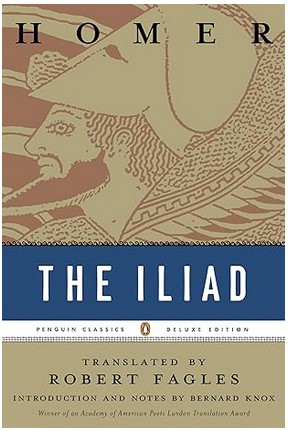

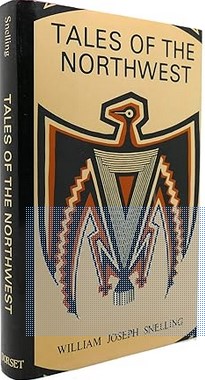
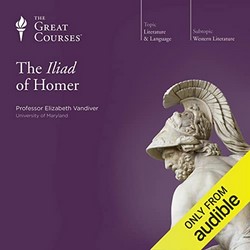
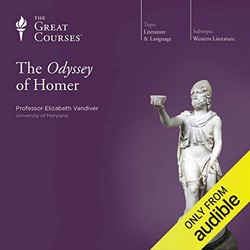
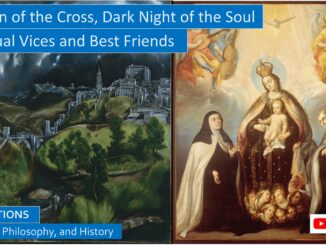
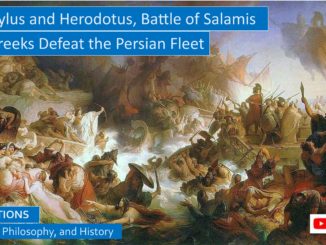
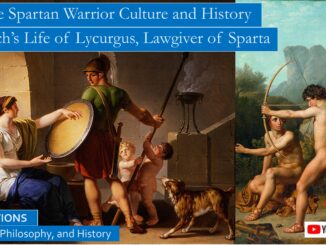
11 Trackbacks / Pingbacks